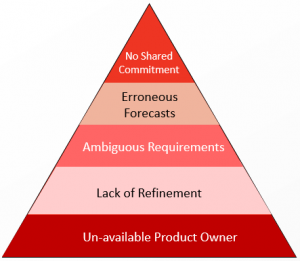TikTok’s problems just keep getting worse: Now it could be in trouble with the IRS
A former TikTok employee has filed complaints with the Department of Labor and IRS over the company’s management of stock options.
A former TikTok employee sent letters of complaint this month to the Internal Revenue Service and the Department of Labor alleging that TikTok’s parent company ByteDance is sabotaging workers’ ability to cash in their stock options, by making it functionally impossible for them to do so freely.
Patrick Spaulding Ryan, who worked at TikTok from 2020 to 2022, says across his series of complaints the issue is the result of an unregulated corporate culture at ByteDance that mistreats employees through a lack of transparency, restrictive contracts, and stock compensation issues.
Ryan’s complaints both allege that the contracts employees are compelled to sign in order to access stock options include perpetual non-disparagement clauses preventing employees from criticizing the company even after leaving; that there are different prices offered in stock buyback schemes for current and former employees; and that vested shares can’t be sold in order to cover tax obligations. The different prices for current and former employees is, for one thing, not unusual, says Joshua Hollingsworth, cochair of the Entrepreneurial and Emerging Companies team at law firm Barnes & Thornburg.
In his letter to IRS commissioner Daniel Werfel, Ryan alleges that “ByteDance views FMV [fair market value of stocks] not as a measure of the company’s fair market value but as a measure of the participant’s employment status.” He claims TiKTok’s parent company issued W-2 wage and tax statements to stockholders based on a fair market value of $158 a share, but then immediately boosted the value of stock options to $160 a share for current employees, while slashing it to $128 a share for former employees.
“It just makes no sense,” he tells Fast Company. “You don’t establish fair market value of the company based on the status of the other recipient.”
Ryan says the company’s decision to issue a W-2 statement has left him with a six-figure tax bill that he is struggling to pay without access to the stock options. (He was able to sell a little more than half his shares in TikTok offered to him when he joined the company as stock options, but around $500,000 worth of them were left unsold.) “They’re not letting me access the shares to pay my tax obligation,” he says. “I’ll be honest, I can’t handle paying tax on that.”
Hollingsworth says that Ryan’s claim highlights the issues that happen when labor laws and corporate law collide. “At least as a matter of corporate law, generally, courts are going to follow a principle of freedom of contract,” says Hollingsworth. “The shareholders are generally free to agree to whatever provisions they want to in the shareholder agreement”, and TikTok is free to set rules as they wish. But Californian labor codes are more likely to favor workers and give them rights against unduly harsh non-compete and non-disparagement clauses. “I guess I’m as interested as anybody else to see how that plays out,” says Hollingsworth.
Ryan was previously involved in a lawsuit involving TikTok—but in that instance, he was acting in support of the social network. In 2020, he filed suit against the Trump administration in an effort to block a ban on TikTok, claiming doing so would cause employees to lose their incomes. (In the end, the ban was never enacted.)
This time around, Ryan is questioning the legitimacy of a non-disparagement clause included in the shareholder agreement that ByteDance staff sign, which says “all of the participant’s restricted share units will be immediately forfeited” if they “directly or indirectly make any critical, adverse or disparaging statement or comment about the Company or any of the Company’s subsidiaries, affiliates, directors, officers, or employees.”
TikTok did not respond to a request for comment on this story. But Ryan has taken his story public because he hopes to enact change. “I’m taking a multiagency approach because there’s no venue for it,” he tells Fast Company. He also says he’s in contact with “hundreds” of employees and ex-employees through anonymous online forums, many of whom are similarly distressed about the issue.
Different elements of his complaint come under different jurisdictions: The tax burden could come under one organization’s jurisdiction—the IRS—while the state of California could fix contractual issues and what Ryan sees as unfair non-disparagement clauses.
Ryan acknowledges the unlikelihood that someone who once sued the U.S. government in support of TikTok’s existence is now petitioning multiple government agencies to take action against the firm and its parent company. “I’ve definitely changed my position,” he says. “I’ve been horrified at the free speech ramifications of a TikTok ban. But this legal issue is very different.”

ABOUT THE AUTHOR
(15)
Report Post








